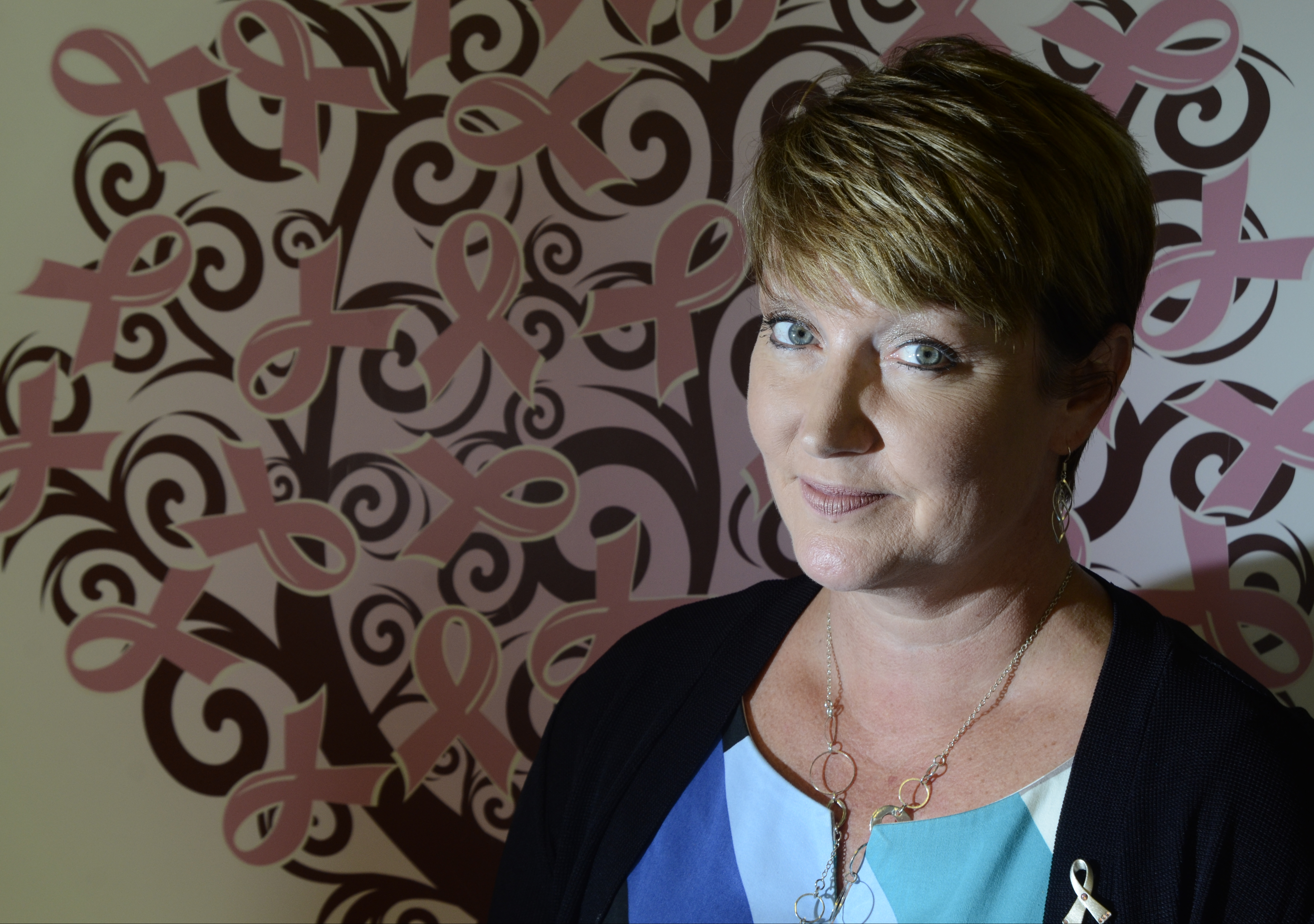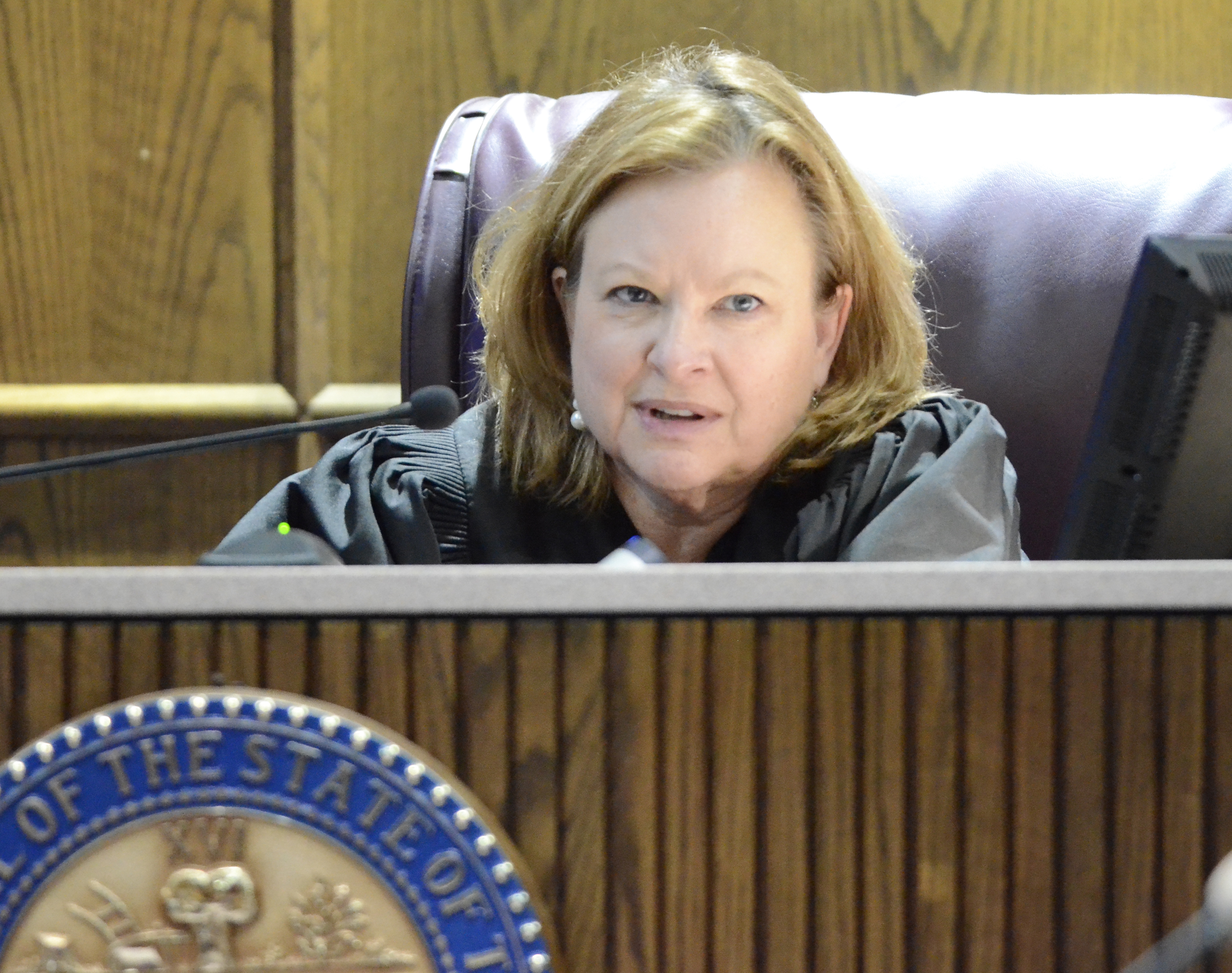NICE GESTURESWant to express your best thoughts to a family member, friend or colleague who has recently been diagnosed with cancer? Tonya Gentry, executive director of Breast Cancer Support Services, offers the following tips:• Deliver already-made meals that can be refrigerated or frozen and just need to be heated when needed (be sure to include cooking instructions).• Drop off a Redbox movie or other DVD at their house (don't forget to come back by and pick it up).• Send a text that you're thinking about them, without looking for a reply.• Text or call when you are at the grocery store to see if they need anything.• Offer to sit during chemo.• Send cards.• Search You Tube together on "How to tie a head scarf" and experiment it together.• Offer to weed a flower bed, walk the dog, vacuum, laundry, or other household chores that can be too tiring for the patient.• Go for a walk with the patient.• Great gift items for women going through chemo and radiation: Scarf (more and more women are opting for scarves over wigs); lotion (chemo is very drying to the skin); playing cards; books and magazines; fun socks (chemo room is cold); a warm blanket or throw; Biotene (moisturizing mouthwash); hard candy (for dry mouth).Source: Tonya Gentry, Breast Cancer Support Services executive director
People usually are trying to be nice, they really are. But they come down with a sudden case of foot-in-mouth disease and horrible words pop out of their mouths.
Breast cancer survivor Tonya Gentry knows all about it, and she understands. Some people are at a loss about what to say when someone they know has cancer. Although trying to be supportive, they'll say the most inappropriate and insensitive things.
"My great aunt died of cancer, but that was a long time ago. I'm sure you'll be fine," someone told a stunned Gentry soon after her diagnosis three years ago.
How about, "Can I rub your (bald) head for good luck?" Wrong.
"You don't look sick." Ugh.
"At least you'll get a boob job out of this." Argh!
Yes, Gentry heard each of these statements from well-meaning people.
"Phone calls to family and friends were difficult, but knowing I had their love, support and prayers made it easier," says Gentry, executive director of Breast Cancer Support Services in Chattanooga. "There were a few awkward moments, though, and sometimes people just really don't know what to say.
"We all want to help our loved ones going through this, but sometimes we end up putting it back on the patient by asking what they need? How can I help?" she says.
Still, she says, "How can I help" beats out "You don't look sick" any day.
Any statement offering moral support is encouraging, says Gentry, "I had an amazing support system beginning with my husband, Buck."
Teresa Boyd, 53, of Ringgold, Ga., was diagnosed with breast cancer last November. She was shocked at some of the things people said to her.
"The worse thing for me was for a man to tell me that having a mastectomy was 'nothing' and how they had a sister, mother, friend or co-worker who had it done and it was no big deal," Boyd says.
Excuse me, she says, it was quite a big deal.
"While I felt sorry for the woman they spoke of, I didn't think they could possibly imagine what she went through or could sympathize with me," Boyd says. "I truly did not want what they said to affect me, but I would be lying if I said otherwise. I wanted to ask them: If they were having something personal removed would they still have that smile on their face and a positive outlook?"
And for pity's sake, don't share stories with breast cancer patients about how a mastectomy went wrong, Boyd says.
"That was hard to hear, too. It has taught me to rethink how I will talk to others in the future."
Nanette Hawkins, of Fort Oglethorpe, Ga., says one of the bedrock points when dealing with a cancer patient is: Be thoughtful.
"My husband (Farris) and I both were diagnosed with lung cancer, so we heard the whole spectrum," says Hawkins, whose husband recently passed away. "The most thoughtful ones were offers of prayers and encouragement, which really helped us both so much. Then there were those that told of some friend or family member that had the same cancer, their horrible experience and outcome, which always made the hair rise on the back of your neck.
"I had successful surgery, survived since '01, but we knew Farris' was not a survivable one, but we still wanted to be positive and keep our eyes on the positive," she says. "It always hurt when someone was not thinking and spilled their ignorance."
Local Hamilton County Criminal Court Judge Rebecca Stern says she'll never forget the encouraging words she heard shortly after her breast cancer diagnosis in 2010.
"One friend, who had survived breast cancer herself, brought me a photo from a recent Komen Race for the Cure that depicted all the breast cancer survivors who were participating in the Chattanooga race," Stern says. "She told me that she wanted me to see all the local survivors - there was a huge crowd - and that I would soon be in that crowd. That was very encouraging. I'll never forget it.
"Also, when I asked my surgeon, Dr. Phil Burns, what he thought about my chances of surviving the cancer and he said, 'I think we will grow old together,' that meant the world to me."
Diagnosed in 2013 with prostate cancer, Randall Smith, of Soddy-Daisy, says he's appreciative of the nice comments he received such as "Hang in there, you're tough" and "Take it one day at a time and never give up."
And it's not just the U.S. where foot-in-mouth strikes; the disease exists across the pond, as well.
Lyn Roberts, of Pembrokeshire, Wales, says on the Times Free Press Facebook page that she is staying positive - even to negative expressions- after learning last July that she has ovarian cancer.
"That's the deal, and I just have to get on with it," she says.
Roberts says she's not focusing on the negative things people might say, but the positive ones instead.
"If nothing else, this has taught me the value of true friendship. You can laugh with people, see them at meetings, but when this stuff hits the fan and they are there for you, walking your dog, feeding the cat, filling the fridge, taking you to your first chemo, then picking you up later and staying with you," she says.
"But it's not just the practical stuff, in some ways that's the easy stuff to do; it's the hugs, the laughs, the unspoken stuff that tells you who is really there for you," she continues. "Never underestimate any of it because it's your family and friends doing whatever they can to get through this journey with you in the only way they can."
And a lesson for us all, says Ooltewah resident and cancer survivor Renee Thomas: Don't judge a book by its cover, especially when you don't know the book in the first place.
Thomas, who was diagnosed in 1999 with chondrosarcoma, cancer of the bones and joints that severely affects her mobility, recalls being yelled at by a woman for parking in a handicapped space.
"I parked in a handicapped slot at Walgreen's when a woman yelled at me and told me I was not handicapped," she says. "My joints are like Swiss cheese. I couldn't even reply because I was so shocked.
"I wish I had told her that I would have loved nothing more than to have not had cancer and to have parked in the farthest regions of the parking lot. I'm never at a loss for words but I was that day."
Contact Karen Nazor Hill at khill@timesfreepress.com or 423-757-6396.


